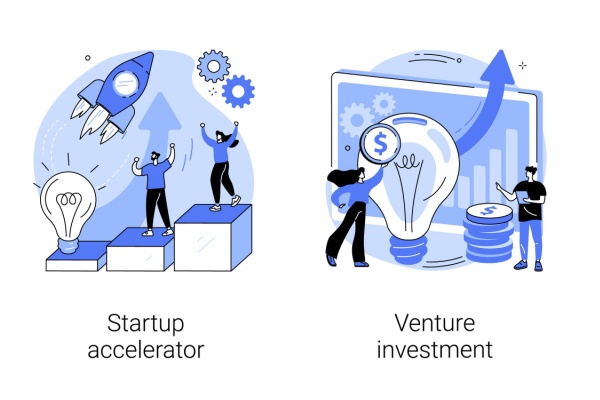If you're building a startup, or even just sniffing around the startup world, you've probably come across a confusing mess of terms: venture studio, company builder, VC, accelerator, incubator, startup studio, and so on.
It’s a jungle. And yeah, people use some of these terms interchangeably all the time, but they’re not always the same thing.
So, let's break it down!. Whether you're a founder, investor, or just a startup nerd, here’s your short guide to what each model is, how they help startups, and what it means for your equity, time, and sanity.
So What Is a Venture Studio?
A venture studio (also called a startup studio, startup builder or company builder) is a startup factory.
It doesn’t wait around for someone to pitch the next billion-dollar idea. It comes up with the ideas internally, funds them, builds the product, recruits the team, and launches the company from scratch, all under one roof.
Think of it like a movie studio: same producers, same camera crew, new cast each time. A venture studio is the producer of multiple startups. They start the idea, hire the CEO, and hand them the keys when the engine is running.
Studios typically own a large chunk of equity, we’re talking 30% to 80%, especially early on. In return, depending on the studio, they bring tech, design, hiring, legal, office space, and more.
Venture Capital (VC): The Money Men
Venture capital firms are probably what most people think of when they hear "startup funding." But VCs don’t build companies, they fund them.
A VC firm raises a fund from investors (called LPs), then uses that fund to invest in promising startups in exchange for equity. Usually, they jump in when there's already a team, a product and traction.
Unlike venture studios, VCs don’t create or operate the startups, they bet on them. They're there for strategic guidance, introductions, and (most importantly) cash. Think of them as high-stakes gamblers who spread bets across 20–30 startups, hoping a few hit it big.
Company Builder? Is That the Same as a Studio?
Kind of.
"Company builder" is often just an old synonym for "venture studio." Some people prefer "company builder" because it sounds less like Silicon Valley buzzword soup.
However, some company builders (especially corporate-backed ones) lean a little more operational or strategic, focusing on innovation within a particular sector. The difference is usually subtle, if it exists at all.
In short: if someone says they’re a company builder, ask if they create startups internally. If yes, it’s a venture studio in disguise.
And What About Accelerators?
Accelerators, like Y Combinator or Techstars, are entirely different beasts.
They don’t create startups, and they don’t fund them with millions (usually). Instead, they run cohort-based programs that take startups through a 3–6 month sprint, providing mentorship, a little cash (often $100k–$500k), and most importantly, access to investors at the end (hello, Demo Day).
Accelerators take a small slice of equity (around 5%–10%), and are best for startups that already exist but need a rocket boost.
Key Differences: Involvement, Equity, Risk
Let’s spell it out.
- Venture Studios are hands-on creators. They dream it, build it, launch it. In return, they take big equity chunks and stay involved.
- VCs are financial backers. They write checks, join the board, offer advice, but don’t touch your product.
- Company Builders are usually just venture studios with different branding.
- Accelerators are mentors with a playbook. They help founders go faster and pitch better, but they didn’t help you start the company.
Founders in a venture studio usually give up more equity early on. But in return, they get a working product, a core team, legal setup, and a launch plan, all without wasting 2 years fumbling through it alone.
On the other hand, if you’re already rolling, and just need gas (not a driver), go talk to VCs or accelerators.
So Which One's Right for You?
That depends on where you’re at.
- Got an idea but no team, no product, no clue where to start? Venture Studio might be your best bet.
- Got a team and traction, but need to raise serious cash to grow? Talk to VCs.
- Already building and wanting mentorship, a push, and exposure to investors? Try an accelerator.
Each model trades off equity for value in a different way. The more someone helps you build, the more they’ll want in return, and that’s fair. Just be honest about what you need.
Final Thought
Startups don’t succeed because they picked the perfect funding model, they succeed because they solve real problems.
But picking the right support at the right time can make all the difference between launching in 6 months or flailing for 2 years.
If you’re a builder, pick the path that lets you focus on what you do best, and brings the right people alongside you for the ride.
Resources
VC Lab: Venture Studio vs. Accelerator Funds
Wikipedia: Venture Capital
Wikipedia: Startup Accelerator
Mayfly Ventures: VC vs Accelerator
SeedReady: Incubators, Accelerators, Studios
Jobs at Venture Studios: What is a Venture Studio



